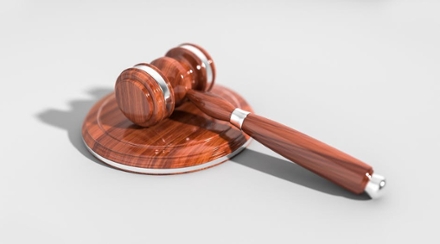Can college sue you for defaulting on your student loan?
There will be quite a few who have already graduated, but are thinking the same thing. The level of student debt the nation now faces is a crippling $1.4 trillion, with 40% of borrowers in default for over 90 days. With a looming financial crisis, some colleges are taking things into their own hands and litigation has followed.
For students with campus-based loans, the college is responsible for paying them back, and therefore is more likely to chase you down for repayments. Federal loans are different, and the government takes responsibility.
There have been cases when the University of Pennsylvania, George Washington University and Yale, for example, have taken student loan defaulters to court to try and get them to pay the debts. The loans in question were subsidized Perkins loans that are designed for low-income students. Department of Education-backed federal loans are state funded and have different payback terms. Around half a million Perkins loans are granted per year, with an average sum of $2,000.
The trend of student loan defaults has been on the rise for several years and shows no signs of slowing down. The media reported 12 suits filed by Penn State, and one each by Yale and GWU. Sums sought were around $7,000 in unpaid Perkins loan debts.
Laws vary from state to state and, in Ohio, the Attorney General’s Office can collect debts from students for up to 40 years after graduation. If debtors are making an effort and paying at least minimal contributions each month, no action will be taken. It’s only when students make no effort at all to repay their loans they can be sued by the university.
You may not have a Perkins loan, but that does not make you exempt. There is still a chance you owe something back to the college such as parking tickets or library fines. Collection agencies are being used more by colleges who do not want to get their own hands dirty chasing student debts. These lawsuits may be the turning point for campuses that are progressively looking to recover their expenses.
There are a number of repayment reduction options such as seeking to consolidate private student loans by taking another loan at lower interest to pay off the high-interest one. This is always preferable to defaulting and possibly ending up in court.
If a collection agency is unsuccessful, that could be the outcome. Litigation is usually the last resort for many institutions, however, they do have other means of collection. Garnishing wages or seizing state tax refunds are preferred methods of debt collection for many colleges across the country. Each year millions of dollars are recovered this way and you will have little choice but to accept it. Naturally, it’s preferable to make at least minimum payments until you’re in a better position financially.
More than ever, a college diploma unlocks economic opportunity, provides students with a wealth of new skills and knowledge, and encourages innovation and growth. But more than ever, it also comes with a mountain of student loan debt. – Mark Pocan.
(Martin J. Young is a former correspondent of Asia Times).


